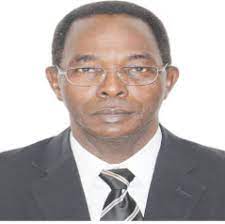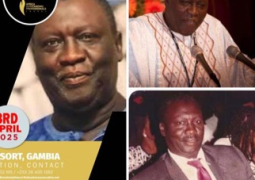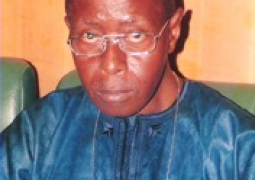
Interestingly, following the visit of BP and other interest groups to the country in 2020, it was announced that the government had signed a contract for oil and gas offshore oil block A1 with BP. This block was said to contain 3 million barrels of oil or more. This A1 oil block was originally licensed to African Petroleum Company, according to news. The Ministry of Energy and Petroleum claim that the country has no oil is, in my opinion, certainly too fanciful and too weak a stand point to deserve serious consideration. The Gambia is not an uneducated Nation to believe that the country has no oil when the countries that sandwiched this country have oil, gas and other mineral resources. It is only fair that Gambians are told the truth and the whole truth about our oil resources in offshore oil blocks A1, A4, A5 and so on. Let the Ministry of Energy and Petroleum Affairs clear the air in respect of key questions constantly raised by the public. 1. How was offshore oil block A1 which was licensed to African Petroleum converted subsequently to the Licence issued to BP. 2. Did BP pay off the African Petroleum Company to take over offshore oil block A1. 3. If that was the case, what did the Gambia Government gain from the deal? 4. How much did the government gain from the signed contract with BP for oil block A1. 5. Why was the government all along silent on the terms and conditions of the License granted to BP. According to reports, the former Minister of Energy and Petroleum Fafa Sanyang had said that three conditions were attached to the License granted to BP; the company will carry out an environmental impact assessment, the company to carry out a two years program of drilling and to enter into financing terms with the government. The details of these three factors have not been put in the public domain to the best of my knowledge. Interestingly, it was in recent times announced that BP had pulled out of the contract agreement with the government for offshore oil block A1 and had paid D1.5 billion to the government. It is geologically and scientifically unsound for an experienced Company like BP to pull out of offshore oil block A1 on grounds of low carbon level and corporate policy. That raises doubts in the minds of many Gambians. By implication, it means BP did not conduct due diligence before signing a contract agreement with the government. How was the amount of D1.5 billion determined as compensation to the government for BP pulling out of the contract agreement. One wonders whether BP in fact carried out the conditions attached to its License granted by the government. Gambians are anxious to know the exact story concerning the country’s oil resources particularly offshore oil blocks A1, A4, A5. The issue is tied to the revelations of the DAY OF RECKONING.
Read Other Articles In Opinion

Women and Society: Nyima Jadama uses pageantry & advocacy platform to drive social change
Mar 20, 2025, 12:39 PM
What's False and What's True on China-related Human Rights Matters: Part I
Jul 7, 2020, 1:07 PM



